
How the King (Mahmúd) purposely asked Ayáz, “(Why) art thou telling all this sorrow and joy to a rustic shoe and a sheepskin jacket, which are inanimate?” (His purpose was) that he might induce Ayáz to speak. پرسیدن پادشاه قاصدا ایاز را کی چندین غم و شادی با چارق و پوستین کی جمادست میگویی تا ایاز را در سخن آورد
ای ایاز این مهرها بر چارقی چیست آخر همچو بر بت عاشقی
(The King said), “O Ayáz, pray, why are these marks of affection, like (those of) a lover to his adored one, (shown by thee) to a rustic shoe?
همچو مجنون از رخ لیلی خویش کردهای تو چارقی را دین و کیش
Thou hast made a rustic shoe (the object of) thy devotion and religion, as Majnún (made) of his Laylá’s face (an object of the same kind).
با دو کهنه مهر جان آمیخته هر دو را در حجرهای آویخته
Thou hast mingled thy soul’s love with two old articles (of dress) and hung them both in a chamber.
چند گویی با دو کهنه نو سخن در جمادی میدمی سر کهن
How long wilt thou speak new words to (those) two old things and breathe the ancient secret into a substance devoid of life?
چون عرب با ربع و اطلال ای ایاز میکشی از عشق گفت خود دراز
Like (the poets among) the Arabs, O Ayáz, thou art drawing out long and lovingly thy converse with the (deserted) abodes and the traces of former habitation.
چارقت ربع کدامین آصفست پوستین گویی که کرتهی یوسفست
Of what Ásaf are thy shoon the abode? One would say that thy sheepskin jacket is the shirt of Joseph.”
همچو ترسا که شمارد با کشش جرم یکساله زنا و غل و غش
(This is) like (the case of) the Christian who recounts to his priest a year’s sins fornication and malice and hypocrisy.
تا بیامرزد کشش زو آن گناه عفو او را عفو داند از اله
In order that the priest may pardon his sins, for he regards his (the priest’s) forgiveness as forgiveness from God.
نیست آگه آن کشش از جرم و داد لیک بس جادوست عشق و اعتقاد
The priest has no (real) knowledge of sin and pardon; but love and firm belief are mightily bewitching.
دوستی و وهم صد یوسف تند اسحر از هاروت و ماروتست خود
Love and imagination weave (create) a hundred (forms beautiful as) Joseph: in sooth they are greater sorcerers than Hárút and Márút.
صورتی پیدا کند بر یاد او جذب صورت آردت در گفت و گو
They cause a form (of phantasy) to appear in memory of him (your Beloved): the attraction of the form leads you into (conversation with it).
رازگویی پیش صورت صد هزار آن چنان که یار گوید پیش یار
You tell a hundred thousand secrets in the form’s presence, just as a friend speaks (intimately) in the presence of a friend.
نه بدانجا صورتی نه هیکلی زاده از وی صد الست و صد بلی
No (material) form or shape is there; (yet) from it proceed a hundred (utterances of the words) “Am not I (thy Beloved)?” and (from you) a hundred “Yeas.”
آن چنان که مادری دلبردهای پیش گور بچهی نومردهای
(‘Tis) as when a mother, distraught (with grief) beside the grave of a child newly dead,
رازها گوید به جد و اجتهاد مینماید زنده او را آن جماد
Utters heart-felt words earnestly and intensely: the inanimate (corpse) seems to her to be alive.
حی و قایم داند او آن خاک را چشم و گوشی داند او خاشاک را
She regards that dust as living and erect, she regards that rubbish as (having) an eye and an ear.
پیش او هر ذرهی آن خاک گور گوش دارد هوش دارد وقت شور
To her, at the moment when she is crazed (with grief), every atom of the earth in the grave seems to have hearing and intelligence.
مستمع داند به جد آن خاک را خوش نگر این عشق ساحرناک را
She believes with all her might that the earth is hearkening (to her): look well at this Love that works magic!
آنچنان بر خاک گور تازه او دمبدم خوش مینهد با اشک رو
Fondly and with tears she lays her face, time after time, on the fresh earth of the grave in such wise
که بوقت زندگی هرگز چنان روی ننهادست بر پور چو جان
As during his life she never laid her face on the son who was so dear to her;
از عزا چون چند روزی بگذرد آتش آن عشق او ساکن شود
(But) when some days pass in mourning, the fire of her love sinks to rest.
عشق بر مرده نباشد پایدار عشق را بر حی جانافزای دار
Love for the dead is not lasting: keep your love (fixed) on the Living One who increases spiritual life.
بعد از آن زان گور خود خواب آیدش از جمادی هم جمادی زایدش
Afterwards, indeed, from that grave (nothing) comes to her (but) slumber (indifference and oblivion): from an insensible object is born in her the same insensibility,
زانک عشق افسون خود بربود و رفت ماند خاکستر چو آتش رفت تفت
Because Love has carried off his enchantment and gone away: as soon as the fire is sped, (only) ashes remain.
آنچ بیند آن جوان در آینه پیر اندر خشت میبیند همه
The (wise) Elder (Pír) beholds in the (iron) brick all that the (ignorant) young man beholds in the mirror.
پیر عشق تست نه ریش سپید دستگیر صد هزاران ناامید
The Elder is thy love, not (the owner of) a white beard. ‘Tis he (Love) that gives a helping hand to thousands who are in despair.
عشق صورتها بسازد در فراق نامصور سر کند وقت تلاق
In (the hour of) separation Love fashions forms (of phantasy); in the hour of union the Formless One puts forth his head,
که منم آن اصل اصل هوش و مست بر صور آن حسن عکس ما بدست
Saying, “I am the ultimate origin of sobriety and intoxication: the beauty in (all) forms is reflected from Me.
پردهها را این زمان برداشتم حسن را بیواسطه بفراشتم
At this moment I have removed the veils: I have raised Beauty on high without intermediaries.
زانک بس با عکس من در بافتی قوت تجرید ذاتم یافتی
Because thou hast been much occupied with My reflexion, thou hast gained the power to contemplate My essence denuded (of the forms by which it is veiled).
چون ازین سو جذبهی من شد روان او کشش را مینبیند در میان
When My pull is set in motion (begins to be exerted) from this side, he (the Christian) does not see (is not conscious of) the priest intervening (between him and Me).”
مغفرت میخواهد از جرم و خطا از پس آن پرده از لطف خدا
(At that time) he is craving forgiveness for his sins and trespasses from the grace of God behind the veil.
چون ز سنگی چشمهای جاری شود سنگ اندر چشمه متواری شود
When a fountain gushes from a rock, the rock disappears in the fountain.
کس نخواهد بعد از آن او را حجر زانک جاری شد از آن سنگ آن گهر
After that, no one calls it “stone,” seeing that such a pure substance has gushed forth from the rock.
کاسهها دان این صور را واندرو آنچ حق ریزد بدان گیرد علو
Know that these forms are (like) bowls and acquire excellence through that which God pours into them.
Special Offers
by: Reza about (category: Masnavi, Persian Poetry)



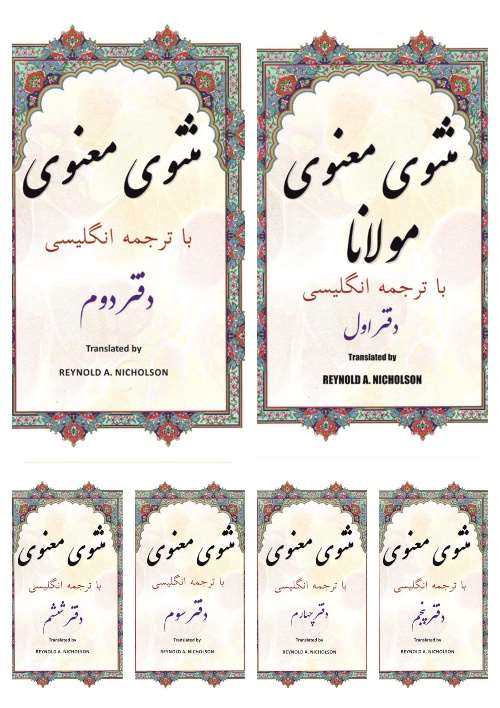
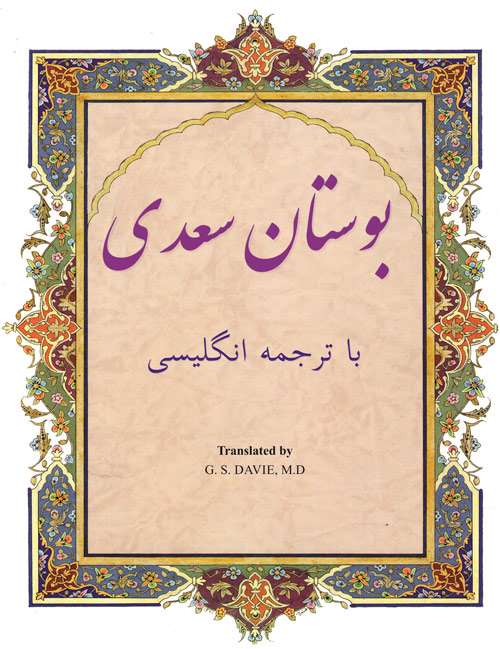
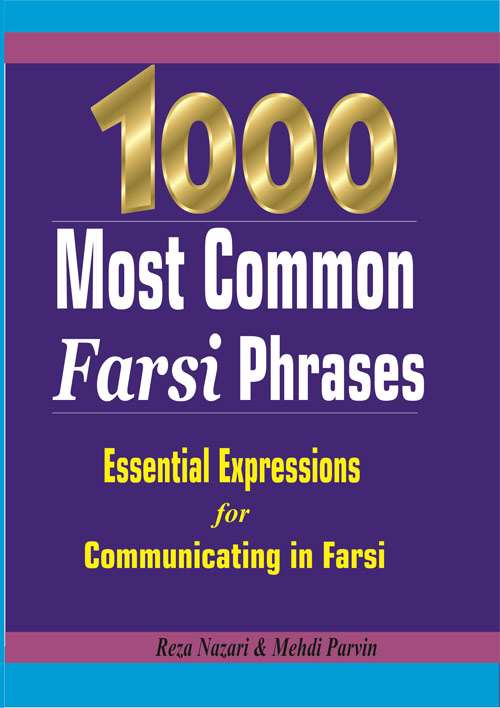
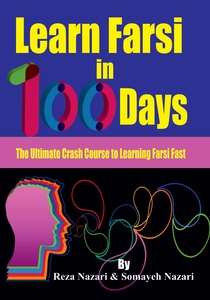






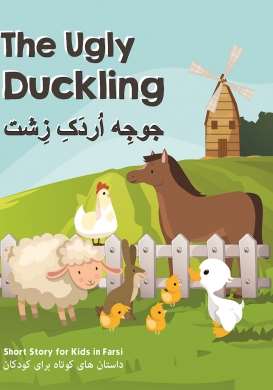
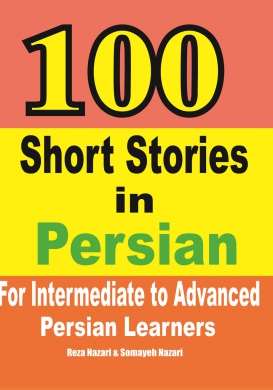

What people say about "How the King (Mahmúd) purposely asked Ayáz"?
No one replied yet.